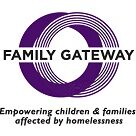Feb 17, 2023– Dallas Observer– Jacob Vaughn
Dallas Mayor Eric Johnson announced on Thursday the formation of a new task force to help the city address homelessness. He’s calling it the Mayor’s Task Force on Homelessness Organizations, Policies, and Encampments, or HOPE for short.
“The issue that’s at hand and that’s on the minds of so many of our residents and so many of our businesses in this city is homelessness,” Johnson said at a press conference at City Hall Thursday. “Like every major city in the United States, Dallas has been affected by increasing homelessness in recent years. What we know from our experience is that it’s a complex problem.”
Johnson said, “This, simply put, is not an easy problem to solve, but we must be willing to do everything we can to solve it.”
That, he said, is why he put together the HOPE task force, which will be run by leaders from several local housing and homelessness organizations. He’s put together similar task forces to improve economic development and public safety in Dallas, a method he calls his “kitchen sink approach.”
The city’s homeless response system is making improvements, but problems persist, Johnson said. So the mayor wants the members of his task force to look at what the city and local organizations are already doing to reduce homelessness and recommend ways to do things better. He’s told them to focus primarily on people who continue living on the streets for various reasons.
Many of those chosen for the task force come from organizations that are working with the city on something called the R.E.A.L. Time Rapid Rehousing Program. That program has gotten more than 1,600 people off the streets and into homes. Now the goal is to move more than 2,700 homeless people into housing,
The people who run these organizations and their staff, Johnson said, “are doing God’s work, seeing the ugly side of society all the time.” But he doesn’t want residents to see that side of society. If his task force is a success, maybe they won’t have to.
“They see people who need a helping hand, people who need a warm meal, people who need a roof over their heads and people who need just a little bit of hope to get back on their feet,” Johnson said. “Meanwhile, we also have residents in this city who are also trying to get by and do right by their families and their communities who want to go to work every day and come home, unfortunately, to see growing numbers of encampments in their neighborhoods.
“… They come to us as leaders of this city and they say that they want and expect to live in a city that does not tolerate, and certainly does not facilitate, disorder, and no doubt everyone in this room and everyone in this city agrees with them. We all do.”
To guide the task force’s efforts, Johnson asked the co-chairs for answers to 12 critical questions as part of their policy recommendations.
He wants to know what the baseline for comparison should be when measuring whether homelessness is increasing or decreasing in the city. From there, he wants to know if homelessness is getting better or worse in Dallas. He also wants the task force to look into how Dallas homelessness compares with other major cities and what the root causes are of that homelessness. These could be factors like mental health or substance abuse issues, criminal backgrounds, family issues and financial hardship. Once the task force members have identified these different root causes, Johnson wants to know what percentage of the homeless and unsheltered populations are driven by each root cause.
The mayor also hopes to get a better understanding of what legal tools the city can use to deal with homelessness.
On top of it all, he wants the task force to determine how other local governments can help. “While the city of Dallas has stepped up in major ways over the years, this cannot continue to be a Dallas city government problem alone to solve,” Johnson said.
The task force has until June 15 to report to the mayor with its recommendations. After that, the group will be disbanded.
Peter Brodsky, chair of Housing Forward; Betty Culbreath, Dallas Housing Authority chair and former director of Dallas County Health and Human Services; and Ellen Magnis, president and CEO of Family Gateway, are the task force’s co-chairs.
They’ll carry out the task force’s work with seven members from organizations like Adult Rehabilitation Ministry, Downtown Dallas Inc., Austin Street Center and others.
Magnis said Family Gateway has already shown it can learn how to do more with less. Family Gateway, a nonprofit focused on getting families into affordable housing, at one time served about 400 families each year. Now, the organization serves four times that number with about twice the budget. But there’s still work to do, she said.
“The truth is homelessness is very complex, and there’s no one-size-fits-all solution,” Magnis said at the press conference. “What I do hope is as a community we can come to understand that those experiencing homelessness are not to blame. They are not the other. They are not unlike us.
“Broken systems and policies have significantly contributed to their plight, and we should remember, there but for the grace of God go I.”
Click here to view the full story.
